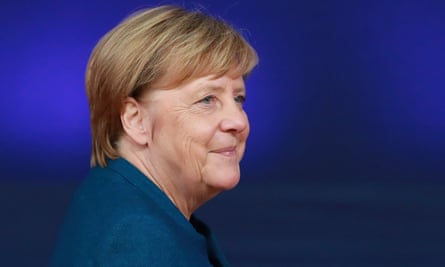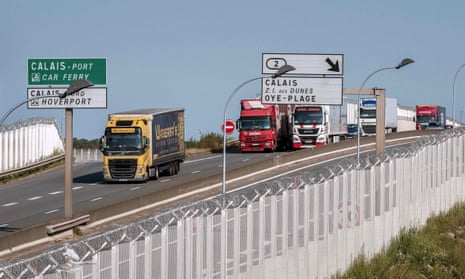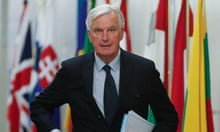Germany and France are starting to step up their preparations for a no-deal Brexit even though both publicly insist an agreement with the UK over the terms of its departure from the EU can still be achieved.
Angela Merkel revealed for the first time on Wednesday that Germany was drawing up contingency plans, saying the government had started making “suitable preparations” for the possibility of Britain leaving with no accord.
While there was there was still a chance for a deal, it was “only fitting as a responsible and forward-thinking government leadership that we prepare for every scenario”, the German chancellor told MPs in Berlin. “That includes the possibility of Britain leaving the EU without an agreement.”
France has published a draft bill that would allow the government to introduce new legal measures to avoid or mitigate the consequences of a hard Brexit by emergency decree, as opposed to parliamentary vote, within 12 months of the law being passed.
It said those consequences would include Britons needing visas to visit and UK nationals resident in the country being in an “irregular” legal situation.
Without emergency measures, British citizens living in France would become third-country nationals, the draft bill states, which would prevent them from holding jobs restricted to EU nationals and limit their access to healthcare and welfare.
Britons would be “obliged to present a visa to enter French territory and to hold a residence permit to remain there”, the bill’s preamble says. A no-deal Brexit would also mean “British citizens with a work contract under French law with a French employer could be asked for a document authorising them to work in France”.
Merkel detailed a similar list of concerns. She said a no-deal Brexit would bring with it “a whole array of questions, such as how, the day after Brexit, do we manage the estimated 100,000 British citizens who, in some cases, have been living in Germany for years.”
She added: “How do we deal, for example, with teachers of British citizenship, who are classed as German civil servants? How do we appropriately prepare our authorities for the added burdens to do with customs issues?”
Merkel said her government was equally concerned about the thousands of German citizens living in the UK, as well as German businesses operating there, and how they could be prevented “from facing any disadvantages”.

France’s draft bill, first published earlier this month, acknowledges it is “not possible to anticipate” what the outcome of the Brexit negotiations will be, adding that for the time being the talks between the UK government and the EU27 are clearly the top priority.
It says any emergency legal steps that the French government may eventually decide to take under the bill – for example to guarantee the rights of British citizens living in France – would depend on the UK adopting reciprocal measures.
“The government is very aware of the situation and rights of French citizens settled in the UK,” the bill states. “The government will take appropriate measures regarding the situation of UK citizens in France. It will take account of the status the UK gives our citizens on its territory.”
Merkel said the negotiations with Britain had been intense but had demonstrated goodwill on both sides, despite what she called the “unfortunate” lack of breakthrough over the Irish border question.
She said it had to be clear to all sides that once out of the EU, Britain could not expect to have the same rights as EU members. “There always needs to be, and there will be, a difference between having membership of the European Union and a partnership with the EU as a third party,” Merkel said.
French Channel ports, as well as passenger and freight transporters, are already planning for a no-deal Brexit, which France’s draft bill said would result in “the reinstating of formalities/controls on goods and passengers to and from the UK”.
Last week Thierry Grumiaux, of the National Federation of Road Transporters, said a delay of two minutes per vehicle for extra customs checks would lead to 16-mile (27km) tailbacks on roads around major French ports. Officials say up to €30m (£26m) investment would be needed to make French ports ready for a hard Brexit.










